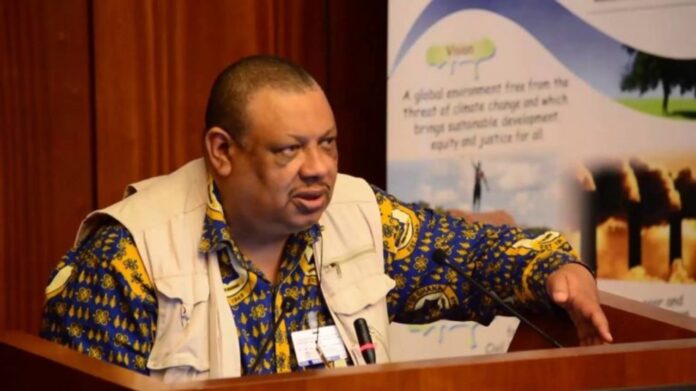Founding Director of Environment and Sanitation Studies at the University of Ghana, Prof Chris Gordon, has expressed grave concerns about the state of Ghana’s water resources.
Despite efforts to combat illegal mining activities, also known as galamsey, Prof Gordon warns that he does not foresee a solution within his lifetime that would render Ghana’s water bodies safe.
He indicated that, galamsey is having a devastating impact on the country’s rivers and other water sources.
Speaking in response to JoyNews’ latest documentary, ‘Poisoned Rivers’, he said the chemicals used in these mining operations are causing significant harm to both the environment and public health.
“Once water is contaminated, it affects not only the soil but also infiltrates the groundwater,” he explained during a discussion on Joy FM’s Super Morning Show.
“The pollution includes heavy metals, hormones, and petrochemicals, and the situation worsens when watercourses are diverted.”
The expert elaborated that mercury contamination is pervasive and affects all aspects of life. “The scale of the pollution is immense. I don’t see a solution in my lifetime. Our entire water supply network and aquatic ecosystem have been severely compromised.”
Prof Gordon noted that, while environmental scientists have long warned about the degradation of water sources, the issue remains pressing.
He anticipates that Ghana may need to import water sooner than expected, despite forecasts from the Ghana Water Company predicting this scenario for the future.
He also pointed out that some individuals are already importing water from abroad due to a lack of confidence in local sources.
“On the shelves of some supermarkets you have imported bottled water that is sold. There are people who don’t trust the water in this country so they buy, and so the importation is happening already” he noted.
The severity of the pollution has escalated from a localized problem to an extensive crisis. “Water acts as a transporter,” Prof Gordon said.
“Any issue upstream affects the entire catchment area downstream. The intensity of pollution has shifted from chronic to acute, compromising many biodiversity hotspots and endemic species.”
Source: Mavis Sekyibea Addo
READ ALSO:

